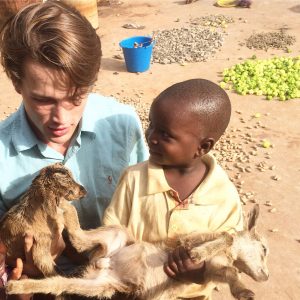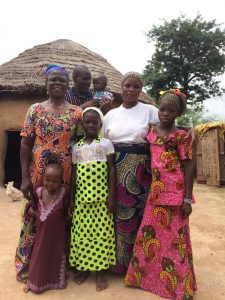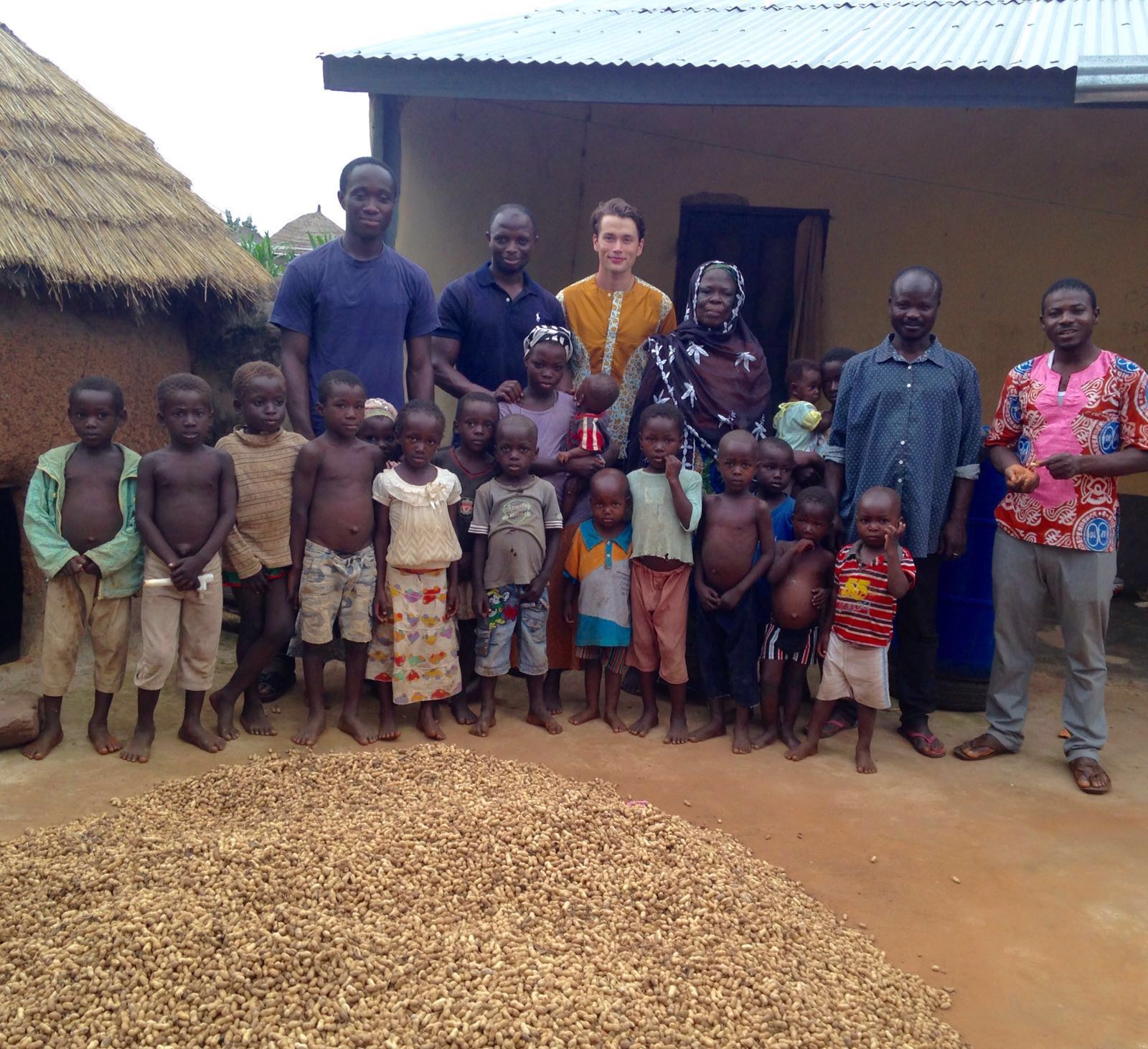Throughout training I learned basic phrases in Dagbani, I learned about Ghanaian agriculture, and I was introduced to the Ghanaian education system. At the end of each day, however, I had my American colleagues with whom I could discuss my observations. Noting a prominent cultural difference—timeliness—I can remember thinking to myself It’s really for the better that I always carry a book in this country as I waited for one of our Ghanaian counterparts to show up; he was running half an hour late again.
again.
Moving into my village last week shook me. It was challenging, at times isolating, but extremely necessary. While interpreting everything I’ve seen over the last month through my personal lens was comfortable, it left me with only a superficial impression of Ghana and its people. If I had been prepared to wait for someone running late, I certainly wasn’t ready to condone his lack of appreciation for the value of my time.
Going out on your own forces you to engage with culture in an entirely different way; not only are you trying to evaluate, reevaluate, and comprehend everything you see, but now fitting in means that you are to emulate the behaviors. After following around my new friends in Cheshegu for just two days I can say that I am never on time. Although my initial interpretation of tardiness was to attribute it to a lack of respect, the reality is just the opposite. Each time I pass a local, it is impossible to avoid a conversation. A simple greeting such as “good morning” turns into a conversation “how did you sleep?” or “how is your family?” The way I see it, the lack of structure can be attributed to an underlying selflessness that leaves my community members rarely considering their own agenda for the day.
 I now live in a community where farmers not only are willing to show me their fields, but want to pick the one ripe tomato off the plant to send me home with. I walk down the road and am offered a tea or a bite of a meal. Kids chase after me on my bike just to introduce themselves and ask my name. Village elders give me the warmest smiles as I try to greet them in my elementary Dagbani while I bike to the market. The sense of community in Cheshegu is overwhelming, and I am so excited to be a part of it. As I continue to push my predispositions and biased interpretations to the side, I look forward to seeing Ghana for its true self.
I now live in a community where farmers not only are willing to show me their fields, but want to pick the one ripe tomato off the plant to send me home with. I walk down the road and am offered a tea or a bite of a meal. Kids chase after me on my bike just to introduce themselves and ask my name. Village elders give me the warmest smiles as I try to greet them in my elementary Dagbani while I bike to the market. The sense of community in Cheshegu is overwhelming, and I am so excited to be a part of it. As I continue to push my predispositions and biased interpretations to the side, I look forward to seeing Ghana for its true self.
Erik Jorgensen received a bachelor’s in Animal Science from Cornell University. Before becoming an AgriCorps Fellow Erik served as an agriculture affairs intern in Washington, D.C. and a cheese production intern in Italy.


